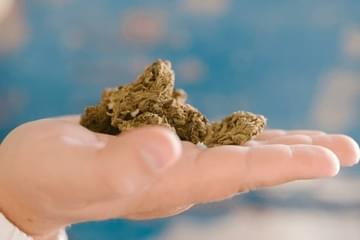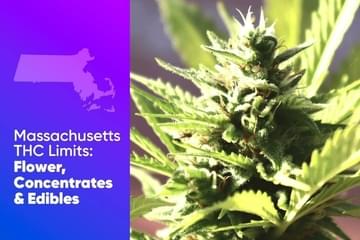
Does Cannabis Affect Your Memory?
Published on 1/17/21
Everyone is familiar with the tired trope of the clueless and forgetful stoner that pop culture has played since Up in Smoke hit the theaters in 1978. The general public consensus and anecdotal evidence suggest that marijuana and memory loss go hand in hand. As research into the intricacies of cannabis progresses, however, there is a growing understanding that the effects of weed on memory might not be as straight forward as initially thought. The brain is a complex organ, cannabis is a complex plant and there are normally interacting factors that impact the relationship between cannabis use and how memory works.
The Effects of Cannabis on Short-Term Memory
 Unsplash
UnsplashAccording to Harvard University Medical School's Harvard Health Publishing, the relationship between tetrahydrocannabinol (THC) and memory can produce deficiencies with the brain's working memory in the short term. THC attaches to receptors in certain regions of the brain that influence memory like the cerebral cortex, hippocampus and amygdala. This can also result in short-term alterations to the overall executive function of the body, delay reaction time and affect physical tasks that require conscious thought. Affects from this type of acute intoxication can last up to several hours but there is no evidence that any residual impairment lingers beyond 48 hours.
Just as the manner and effects of intoxication can vary between cannabis users, memory differences can vary between light consumers and individuals who are heavy and long-term cannabis users and have established a substantial tolerance to THC. Advanced neuroimaging techniques are now modeling the neurological foundation of the effects of cannabis use and early results show that there might be a network of functional and morphological alterations that could moderate the effects of cannabis on memory function over the long term. Basically, if you've been smoking weed for years, there is now evidence that your tolerance for THC is mitigating some of the memory impairment seen in short-term users.
How Does Weed Affect the Brain and Long-Term Memory?
 Unsplash
UnsplashThat same Harvard publication noted, "the extent to which long-term use of marijuana (either for medical or recreational purposes) produces persistent cognitive problems is not known." A huge factor is that cannabis remains illegal at the federal level and that has greatly impeded the ability of scientists to conduct extensive research and produce peer-supported studies on the effects of cannabis use on what is by far the most complex organ in the human body. "How does THC affect the brain" is a broad question that will require hours of unrestricted research to understand. We all have a concept of what memory is, but it difficult to measure in one quantifiable manner. Perhaps the most definitive study published on the matter was from the Journal of the American Medical Association (JAMA) in 2016. The study says that steady marijuana use can result in remembering fewer words from a list but there is no evidence that it affects other areas of cognitive function. The study aligns with the Harvard report: "It remains unclear whether there are long-term effects from low-intensity or occasional marijuana use earlier in life and whether the magnitude and persistence of impairment depend on the duration of marijuana use or the age of exposure."
Recent research is shedding some light on how cannabis affects memory recall. It is more difficult to form new memories while under the influence of cannabis and acute use can increase the likelihood of the brain creating false memories while influenced by THC. Scientists created a virtual reality eyewitness and perpetrator scenario which showed that participants given THC provided higher rates of false-recognition in the associative task that was part of the study.
Does Cannabidiol (CBD) Affect Memory?
CBD and memory have an interesting relationship because CBD counteracts THC when it links with the body's endocannabinoid system. This adds to difficulties in studying cannabis and the brain; the THC and CBD percentages in the strain, the dosage given to subjects and cannabis consumption habits play a role in how the brain will react. Research proves that CBD shields brain cells that influence memory and is known as a neuroprotector. CBD also promotes the growth and development of neurons in the brain, improves memory function in patients with dementia and Alzheimer's and some studies claim that CBD could help with memory issues in people dealing with psychosis. We need more research to see precisely how CBD affects memory specifically, but the scientific community is gradually beginning to understand that CBD and the brain work well together.
Have you had any memory issues with cannabis? Are you a new cannabis user or have you been consuming weed for a while? Take a moment to let us know your thoughts about cannabis use and memory function in the comment section below.












